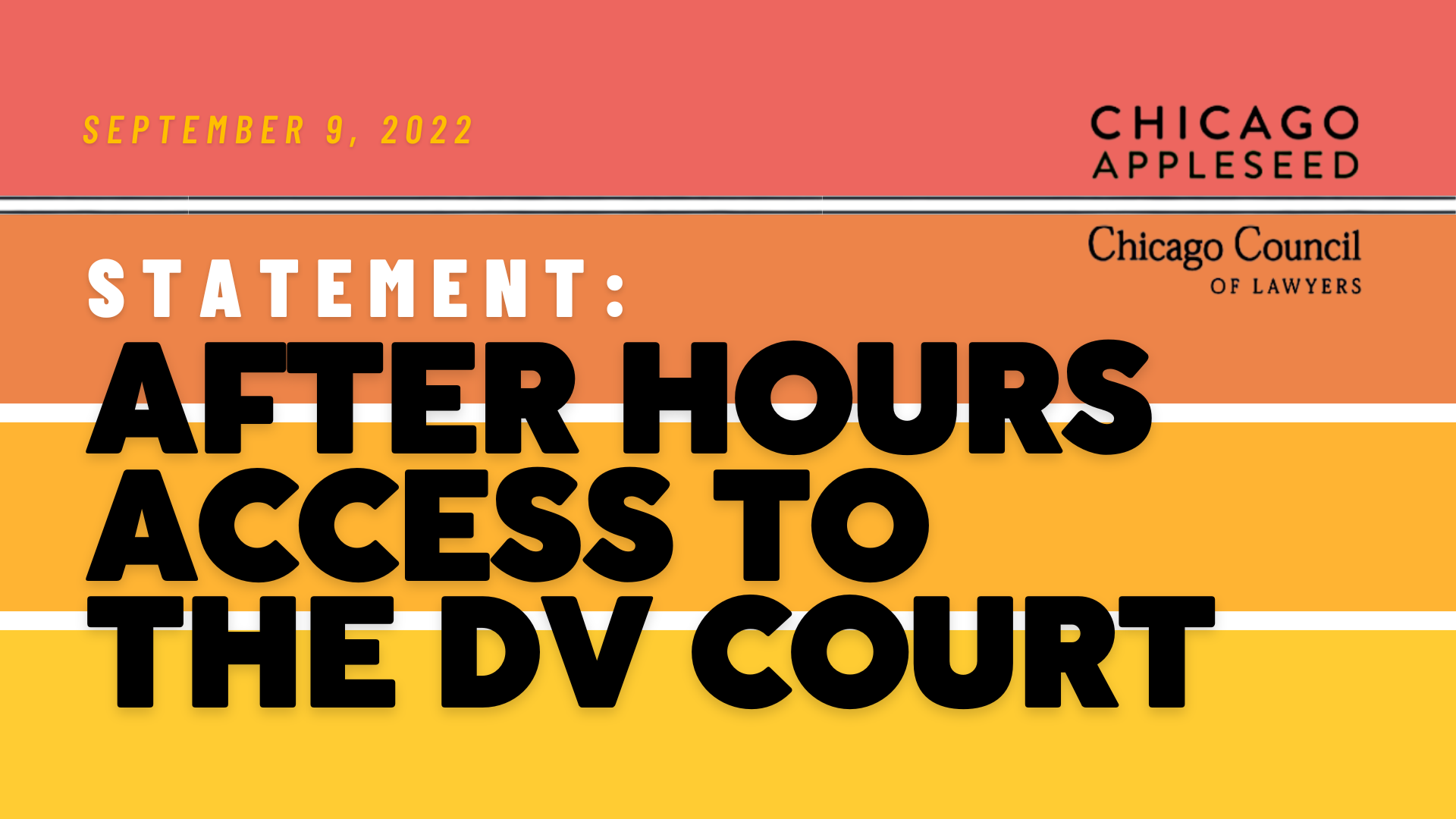Statement: After Hours Access to the Domestic Violence Court
The Domestic Violence Division of the Circuit Court of Cook County launched after-hours access, via remote proceedings, for Civil Emergency Orders of Protection this week. In addition to regular court hours, Monday to Friday 8:30 AM to 4:30 PM, remote hearings are now available Monday to Friday, 9:00 PM to 3:00 AM and on Saturday and Sunday between 1:00 and 6:00 PM. During extended hours, people will access forms to request a Civil EOP hearing by visiting Illinois Legal Aid Online. Hearings for Criminal Orders of Protection will not be heard during extended hours.
Expanded court hours for improved access to Emergency Orders of Protection was a primary recommendation of the Domestic Violence (DV) Committee convened by Chief Judge Evans in August of last year. The court has worked quickly—and in close consultation with the advocate and practitioner community—to open the courthouse for longer hours. Prior to the convening of this committee, the Domestic Violence Court had come under scrutiny for dysfunction from both Cook County Commissioners and the press.
As noted on the Court’s website, Chief Judge Evans revived the DV Committee after more than a decade of inactivity, in part to examine the feasibility of 24-hour access. Chicago Appleseed had the honor of serving on that committee. The revival of the committee signals a re-engagement with the community who practice in this court and with other practitioners who provide assistance to persons experiencing domestic violence, as does the inclusion of the advocacy community in launching expanded hours access. We understand the court has left open a clear channel for feedback from the service community on the after-hours access, again signaling a commitment to changing the court’s relationship with the people it serves.
Chicago Appleseed Center for Fair Courts and the Chicago Council of Lawyers completed its two-year-long evaluation of the DV Division and released our report and recommendations in August. A major finding in our report was a general disconnect between judges and court staff and the needs of litigants that is exacerbated by technology and training issues and limited operational capacity. To combat this, we recommended that the court cultivate regular, meaningful engagement with practitioners about their experiences—and the experiences of litigants—accessing court services. In terms of accessibility, the people we interviewed for the report discussed two proposed reforms: continued remote access to the courts and 24/7 courthouse operations. While opinions were generally ambivalent about both, there was some consensus that remote access should remain in some capacity for litigant comfort and safety, and that hours should be expanded to improve compatibility with litigants’ work schedules.
The opening of the courthouse in 2005, and subsequent creation of the Domestic Violence Division in 2010, laid important groundwork for improved outcomes in domestic violence cases in Cook County. Meaningful assessment of expanded hours should be ongoing and should consider the experiences of litigants and practitioners, as well as the impact on judges, staff, and available resources, to ensure it’s a useful reform. Continued meaningful engagement with community concerns, alongside appropriate data collection and self-assessment, will be necessary to build on the Division’s early innovation to ensure it fulfills goals of safety and equity.

